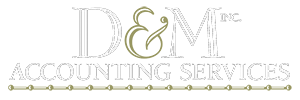The DIY dilemma is always the same, regardless of the subject matter. In home repairs, we weigh the cost savings against the time investment, but often overlook required skills and experience. As members of the “YouTube generation,” we feel we can do anything without professional help. Applying that mindset to bookkeeping could be catastrophic.
Just to be clear, we’re not talking about subscribing to QuickBooks online. Every business should be connected to professional bookkeeping software. Attempting to manage that software is where we see the DIY effect. Professional accountants do it for a living. Most business owners stumble through it, investing hours that could be spent elsewhere.
The Hidden Costs of DIY Bookkeeping

Time is Your Most Valuable Resource
If you’re spending 10-15 hours a week managing your bookkeeping software, that’s time you’re taking away from revenue-generating activities that could grow your business. According to ZipRecruiter, the average annual salary for a small business owner in Milwaukee is $126,084. That breaks down to $61 per hour for every hour you spend managing your software.
The math is worse in the first few weeks after you install your bookkeeping software. That’s the time you’ll need to learn how it works, so expand your hourly projection by ten more hours per week. When you look at this from a practical perspective, you’ll be losing half your available work hours and burning over $1000 per week in potential revenue.
Costly Mistakes Add Up Fast
Losing money is one argument against DIY bookkeeping. The likelihood of costly mistakes is another. One misclassified expense could trigger an IRS audit. Missed quarterly payments incur penalties and interest. Improper inventory tracking can affect cash flow. These aren’t hypothetical scenarios. They happen every day. Consider the real cost of mistakes:
- IRS penalties for late filings: $205 per month for returns over 60 days late
- Failure to pay penalties: 0.5% of unpaid taxes per month, up to 25%
- Professional fees to fix errors: Often 3-5 times more than preventive bookkeeping
- Lost deductions due to poor record-keeping: Can cost thousands in additional taxes
Stress and Decision Fatigue
Running a small business can be stressful, even without the added concerns of managing your bookkeeping software. That anxiety intensifies during tax season. You may find yourself second-guessing every entry as you try to make the numbers work. That can have a physical and psychological effect on you and your management team.
This stress can affect your decision-making in other areas of your business. When you’re overwhelmed by financial tasks, you can’t think strategically about growth, hiring, or new opportunities. That is a compelling argument for hiring a professional bookkeeper to manage your financial records. The monetary cost of doing it yourself is another.
Warning Signs That It’s Time to Call a Professional
Your Books Don’t Match Your Bank Account
Reconciliation is the stage where every mistake is exposed. When your books don’t match your bank account, you have a problem. The source of that problem could be duplicate transactions, miscategorizations, or missed transactions. DIY bookkeepers must find those themselves.
You’re Behind on Quarterly Taxes
Quarterly tax deposits are due on specific dates each year. Missing those dates can be costly because the IRS assesses penalties and interest for missed or late payments. They don’t care if you’re busy with other tasks. This is another sign that you need professional help.
You Don’t Understand Your Financial Reports
Categorizing your transactions is one of the simpler tasks for DIY bookkeepers. Understanding the financial reports generated by your bookkeeping software can be more challenging. That includes your profit and loss statement, cash flow statement, and balance sheet.
You’re Growing Fast
There are two reasons why rapid growth can be a problem for do-it-yourselfers. The first is the increase in the volume of work required to keep your books in order. The second is the amount of time you’ll need to manage that data. This is a sure sign that you need a professional.
The Milwaukee Advantage: Working with Local Professionals
Industry Knowledge
Understanding local tax laws and industry-specific regulations is critical for DIY and outsourced bookkeepers. As a local firm, we stay current on any changes in Milwaukee’s business community and any state tax modifications that might affect your business.
Relationship Building
Face-to-face meetings matter, especially when discussing sensitive financial information. Working with a local bookkeeper means you can sit down with your accountant, review your books together, and build a relationship that goes beyond just number-crunching.
Timely Response
There are times when you need a rapid response to a request for financial records. Loan applications are a good example of this. The bank may require an immediate submission to approve your loan. A delay could cause them to deny your request.
What Professional Bookkeeping Actually Costs
Monthly Bookkeeping Services
Most Milwaukee businesses pay between $300 and $800 monthly for professional bookkeeping, depending on transaction volume and complexity. This typically includes:
- Monthly financial statement preparation
- Bank reconciliation
- Accounts payable and receivable management
- Sales tax preparation
- Basic financial analysis
Full-Service Accounting
Comprehensive accounting services, including tax preparation and planning, typically cost $800-$ 2,000 per month. This might seem expensive, but consider the value: accurate books, tax compliance, financial insights, and peace of mind.
Return on Investment
Professional bookkeeping pays for itself through:
- Tax savings from proper deduction tracking
- Avoiding penalties and interest
- Better cash flow management
- Time savings that allow you to focus on revenue generation
- Strategic financial advice that improves profitability
Making the Transition to a Professional Bookkeeper
Don’t Wait Until Tax Season
The worst thing you can do to an accountant is contact them during tax time. Chances are you’re in crisis mode if you need immediate help when the tax deadline looms. It’s better to reach out during a slower period, preferably before the situation becomes a real problem.
Gather Your Records
One good thing about DIY bookkeeping is that you’ll have at least some records to present to a professional bookkeeper. Organize what you have before your first meeting. If you are trying to correct mistakes, show your new accountant where you think they were made.
Ask the Right Questions
Not all accounting firms are the same. Ask about their experience with businesses of your size, their technology platform, communication preferences, and how they handle growth. You want a partner, not just a service provider. D&M Accounting can be your ideal partner.
The Bottom Line
DIY bookkeeping might save money in the short term, but it typically costs more in the long run. Between the time investment, potential mistakes, and missed opportunities, most Milwaukee business owners are better served by professional bookkeeping services.
Your business deserves accurate financial records, timely tax compliance, and strategic financial guidance. Those benefits far outweigh the cost of professional services. The question isn’t whether you can afford to hire an accountant—it’s whether you can afford not to.
If you’re ready to stop worrying about your books and start focusing on growing your business, contact our team at D&M Accounting today. We’ve helped hundreds of Milwaukee area businesses transition from DIY bookkeeping to professional financial management. Call us at 262-253-9955 to discuss how we can help your business thrive.

